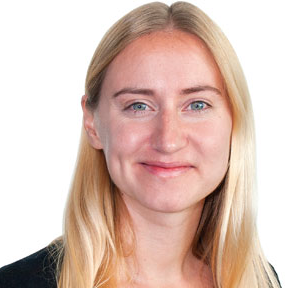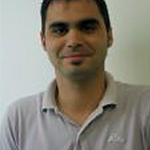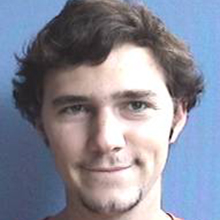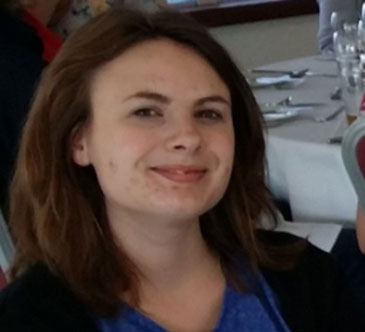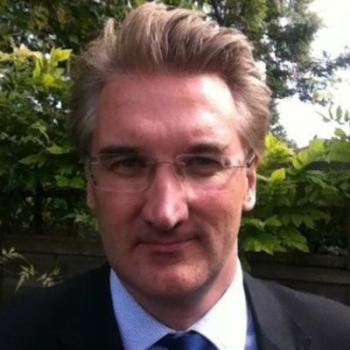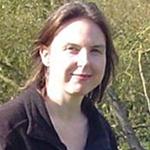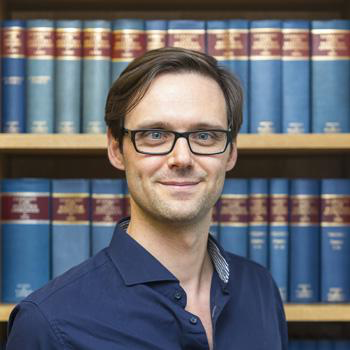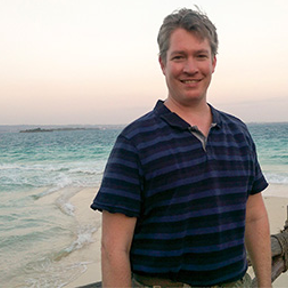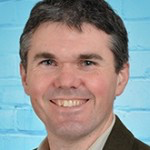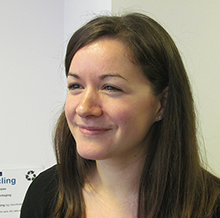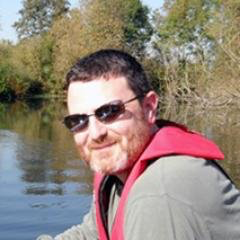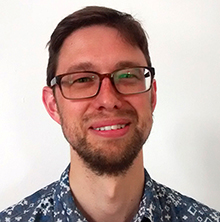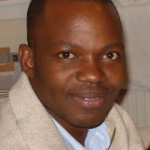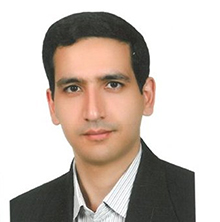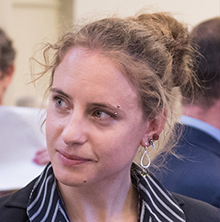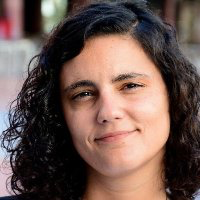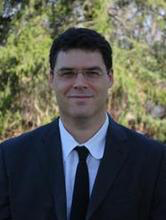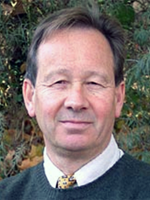The MaRIUS research consortium incorporate expertise across the range of drought impacts from environmental, social, humanities, economics and engineering perspectives. Moreover, the consortium has a track record of innovation in the development of interdisciplinary science and stakeholder engagement. The consortium partners (Oxford, Bristol and Cranfield Universities, the Centre for Ecology and Hydrology and the Met Office) have worked together in a variety of collaborations, and are motivated by the prospect of developing an interdisciplinary and integrative approach to drought impacts analysis and risk management, which we consider to be very timely, both scientifically and in practice.
Director, Environmental Change Institute (ECI)
ECI, University of Oxford
The project is led by Prof Jim Hall in the University of Oxford, who is Director of the Environmental Change Institute and Professor of Climate and Environmental Risks. Prof Hall has pioneered the use of probabilistic and simulation methods for analysing environmental risks and decisions. He is the engineer on the Adaptation Sub-Committee of the independent Committee on Climate Change and is co-chair of the Global Water Partnership / OECD Task force on the economics of water security. For MaRIUS, Jim will be coordinating the project, and focusing particularly on the water system modelling aspects; the economic impact assessments; the synthesis of options and strategies for management, and the creation of the Dashboard.
Professor of Geosystem Science
Environmental Change Institue (ECI), University of Oxford
Prof Myles Allen is Professor of Geosystem Science in the University of Oxford. He has been the Principal Investigator of the climateprediction.net project since its inception in 1999. He is also a long-standing contributor to the IPCC in the area of formal methods of detection of change and attribution of causes. Myles’ work for MaRIUS centres on the creation of two drought datasets: a new hindcast dataset of past droughts that will augment back to 1880 limited historical records using the 20th Century Reanalysis dataset downscaled to 25km resolution over Europe; a and a synthetic event set of present day and future hydrometeorological drought conditions for the UK though the use of large ensemble of high resolution regional climate model outputs. This work will be undertaken with Richard Jones, Simon Dadson, and Benoit Guillod.
Science Area Lead, Natural Capital
Centre for Ecology & Hydrology (CEH), Wallingford
Dr Mike Acreman is the Science Lead for Natural Capital at the Centre for Ecology and Hydrology in Wallingford. Mike’s research interests lie at the interface between hydrology and ecology, with a particular reference to wetland environments. Mike recently led the definition of UK river requirements to meet the European Water Framework Directive, and as leader of the World Bank Environment Flow advisory panel, he has supported the development of environmental flow allocations in Tanzania and China, and he has coordinated the definition of guidelines on environmental flow releases from reservoirs as the UK contribution to the World Commission on Dams. As a member of the Scientific and Technical Review Panel of the International Convention on Wetlands responsible for water programme, he has developed guidance for Contracting Parties groundwater and water quality issues of wetlands. Mike’s work on MaRIUS will be to assess the effect of drought on aquatic ecosystems, along with Pam Berry and Cedric Laize, particularly with regard to wetlands, using model outputs from other project researchers as well as existing data and models.
Leader of the Biodiversity and Climate Adaptation group
ECI, University of Oxford
Dr Pam Berry is Leader of the Biodiversity and Climate Adaptation group in the University of Oxford, focussing upon assessment of change in biodiversity and ecosystem services in the UK and elsewhere in Europe. She was a Lead Author on the England Synthesis chapter for the UK National Ecosystem Assessment and on the Working Group for UK Terrestrial Biodiversity Climate Change Impacts Report Card. Pam’s work on MaRIUS will be to undertake an assessment of the effect of droughts on ecology, by combining hydrological alteration metrics and using eco-hydrological models of organism/community response to long-term discharge. The output will be biologically-based eco-hydrological indicators of low flow regimes enabling assessment of implications of drought for fish, macro-invertebrates and macrophytes. This will be undertaken in association with Cedric Laize and Mike Acreman.
Hydrological Modeller. Group leader, Hydrological Modelling and Risk (HMR) Group
Centre for Ecology & Hydrology (CEH), Wallingford
Dr Vicky Bell leads the Hydrological Modelling and Risk group at the Centre for Ecology and Hydrology in Wallingford. She specialises in the development of spatially-distributed hydrological models, and modelling of hydro-ecological systems as affected by natural hazards, including the Grid-to-Grid hydrological model, currently used for UK-wide seasonal hydrological forecast system (“Hydrological Outlooks”). For MaRIUS, Vicky will be working on the development and application of national gridded hydrological models to enhance the representation of drought processes.
Nutrient Hydrochemist. Group leader, Water Quality Processes Group leader
Centre for Ecology & Hydrology (CEH), Wallingford
Dr Mike Bowes is Head of the Water Quality Processes Group at the Centre for Ecology and Hydrology, based at Wallingford. He specialises in conducting within-river mesocosm experiments to investigate the effects of nutrient concentration, light and flow on algal growth and microbial community structure. Dr Bowes manages the CEH Thames Initiative monitoring programme, which carries out high quality chemical and biological monitoring along the River Thames and its tributaries.
Applied climate scientist specialising in regional climate modelling and providing climate information to build resilience in developing countries.
Met Office, UK
Laura is a senior applied climate scientist working in the Climate Information for International Development team within the Met Office Hadley Centre. The team develops the PRECIS: a regional climate modelling system regional climate model and provides training PRECIS workshops on the model to researchers from around the world. Laura also works on a number of research projects such as FRACTAL which is jointly funded by DFID and NERC and led by the University of Cape Town with partners across Africa and the UK. FRACTAL aims to use a transdisciplinary learning approach to advance knowledge of climate science and integrate this into accessible, timely, applicable and defensible climate information for use by decision-makers operating at the city scale in Southern Africa. A similar project Laura works on is Decentralised climate information services for decision making in western Kenya whose purpose is to develop and deliver demand-led and decentralised climate information services at the county level. Laura also participates in the MARIUS project which uses expertise across social and natural sciences with key stakeholder engagement to understand and predict future droughts and water scarcity in the UK.
Researcher
School of Geography and the Environment (SoGE), University of Oxford
Dr Gianbattista Bussi is a postdoctoral research assistant at Oxford University with interests that include hydrological and sedimentological distributed modelling at the catchment scale, analysis of climate change impact on water resources and soil erosion, and reservoir sedimentation. He contributed to developing the hydrological distributed model TETIS and its sediment cycle sub-model. Gianbattista’s main activity within MaRIUS is the hydrological, sediment and water quality modelling in the context of land-use and climate change, under the supervision of Dr Simon Dadson and Prof Paul Whitehead. He also works on the POLL-CURB project (Changes in Urbanisation and its Effects on Water Quantity and Quality from Local to Regional Scale).
IIASA Postdoctoral Research Scholar - Energy, Water and Transition to New Technologies
International Institute for Applied Systems Analysis (IIASA)
Dr Ed Byers is an IIASA Postdoctoral Research Scholar in the Energy (ENE), Water (WAT) and Transition to New Technologies (TNT) programs, with research interests in infrastructure systems, water and climate change risks, the water-energy nexus and development. His main focus is at the interface between water resources and energy systems. Currently, Dr. Byers' research at IIASA is on water and climate change risks to the energy sector using global hydrological models and energy sector downscaling tools. His previous work has covered a variety of angles, from water footprinting of electricity pathways and different cooling systems, to catchment hydrology and simulation of water withdrawal licensing regimes. He will work on investigating the impacts of drought on the electricity sector in the UK. This includes development of a module for characterising future water demands of the electricity sector, and development of simulation rules to implement different abstraction licensing regimes.
Postdoctoral Researcher at the Centre for Socio-Legal Studies
Centre for Socio-Legal Studies, University of Oxford
Dr Christina Cook is a researcher at the Centre for Socio-Legal Studies, at Oxford University, where she analyses regulatory governance arrangements (law, policy and practices) for water scarcity in England and Wales. Her work for MaRIUS engages legal scholars, economists, human geographers, hydrologists, and climate scientists in the development of a more risk-based approach to governance of drought. Her core research Interests include water security and the water-energy nexus; scale and politics in water governance; and the intersection of land use planning and water governance.
Postdoctoral Research Associate
School of Geographical Sciences, University of Bristol
Dr Gemma Coxon is currently completing her PhD in the University of Bristol‘s Hydrology group investigating regional differences in catchment behaviour. She is researching why different catchments exhibit different runoff characteristics, and is interested in the visualisation of national GIS datasets and model output through ArcGIS and Google Earth. Gemma will be working with Jim Freer on the development of hydrological models for MaRIUS.
Research Fellow
Centre for Socio-Legal Studies, University of Oxford
Dr Chris Decker is Senior Associate Research Fellow at the Centre for Socio-Legal Studies, University of Oxford and formerly Research Director at the Regulatory Policy Institute. He has been economic advisor to regulators and government bodies in a number of countries, including Australia, the UK and for the European Commission. Recent work in the water industry has focused on examining the prospects for competition in the water industry and the reform of the abstractions regime in England and Wales.Chris’s research in MaRIUS focuses on delivering an economic and infrastructure impact assessment, and the creation of a synthesis of options and strategies for management, along with Prof Jim Hall.
Associate Professor in Physical Geography
School of Geography and the Environment (SoGE), University of Oxford
Dr Simon Dadson is a University Lecturer in Physical Geography in the University of Oxford. Dr Dadson researches the links between climate change, hydrology and Earth surface processes. In research funded under NERC’s Changing Water Cycle Programme, Dr Dadson has investigated the impacts of climate, land-cover change and urbanization on river flow and water quality in the Thames basin and recently has integrated a river-routing model into the Met Office’s regional climate model. Simon’s work for MaRIUS centres on the creation of two drought datasets: a new hindcast dataset of past droughts that will augment back to 1880 limited historical records using the 20th Century Reanalysis dataset downscaled to 25km resolution over Europe; a and a synthetic event set of present day and future hydrometeorological drought conditions for the UK though the use of large ensemble of high resolution regional climate model outputs. This work will be undertaken with Richard Jones, Myles Allen, and Benoit Guillod.
Lake Ecosystem Modeller
Centre for Ecology & Hydrology (CEH), Lancaster
Dr Alex Elliott is a Lake Ecosystem Modeller and is in charge of the Algal Modelling Unit, based at the Centre for Ecology and Hydrology, Lancaster. He examines phytoplankton community assembly and has developed the PROTECH (Phytoplankton RespOnses To Environmental CHange) model, which simulates the growth of multiple algal species in lakes and reservoirs.
Professor of Hydrology
School of Geographical Sciences, University of Bristol
Prof Jim Freer is a Professor of Hydrology at the School of Geographical Sciences, University of Bristol and head of the Hydrology Research Group. He is internationally-renowned for the development and application of rainfall-runoff models and uncertainty analysis approaches. Jim has >20 years of experience leading environmental modelling and uncertainty analysis techniques to quantify model predictions.
Researcher
Environmental Change Institute (ECI), University of Oxford
Dr Jaume Freire Gonzalez is a postdoctoral research associate at the University of Oxford. He has worked as a consultant for many governments and institutions and has conducted both theoretical and empirical research on several issues related to environmental and ecological economics, but his main areas of work are water economics, energy economics, and environmental taxation. He has widely used applied economic modeling methods such as environmental econometrics or general equilibrium modeling (Input-output analysis and extensions) to assess environmental problems, from an academic and a policy-making perspective. He holds a PhD in Applied Economics from the Autonomous University of Barcelona. Jaume’s work on MaRIUS centres on the economic analysis of the impacts of droughts.
Project Manager, MaRIUS
Environmental Change Institute (ECI), University of Oxford
Dr Helen Gavin is the MaRIUS project manager, as well as a Principal at Atkins, undertaking consultancy work for many clients including regulators and water companies, focusing on water and sustainability issues. Her MaRIUS role is part-time, and so she will be continuing with her existing Atkins job part-time as well. Helen has a background in hydrology and environmental science, and has been working in the water sector for over 13 years. Her interests and experience is wide ranging and includes wetlands, hydroecological investigations, water resource management including droughts, and also wider sustainability issues such as greenhouse gas reporting, water footprinting, and renewable energy.
Research Officer in the Regulation of Water Resources
Centre for Socio-Legal Studies, University of Oxford
Dr Kevin Grecksch is a researcher at the Centre for Socio-Legal Studies, University of Oxford. He is a social scientist who specialises in water governance and climate change adaptation. His work for MaRIUS focusses on Task D.2 and will explore and review options for drought management practice in the UK. Kevin’s core research interests include water governance, climate change adaptation, governance of societal transformation processes, property rights and natural resources, sustainability, ecological economics and the governance of sustainable bioenergy supply chains.
Researcher
Environmental Change Institute (ECI), University of Oxford
Dr Benoit Guillod is a post-doctoral researcher at the University of Oxford.Benoit is working on the climate modelling elements of the MaRIUS project. He will be using weather@home to produce a validated, synthetic set of droughts and heat waves within the framework of probabilistic event attribution in the UK. He will be creating two drought datasets: a new hindcast dataset of past droughts that will augment back to 1880 limited historical records using the 20th Century Reanalysis dataset downscaled to 25km resolution over Europe; a and a synthetic event set of present day and future hydrometeorological drought conditions for the UK though the use of large ensemble of high resolution regional climate model outputs. This work will be undertaken with Richard Jones, Myles Allen, and Simon Dadson.
Software Engineer in the Regional Predictions group and is the overall coordinator of the PRECIS regional climate modelling system.
Met Office, UK
Professor of Integrated Land and Water Management
Cranfield Water Science Institute (CWSI), Cranfield University
Dr Ian Holman’s research is focused on understanding the effects of interactions between agricultural management, soil properties and weather on soil degradation, yields and hydrological response. He is the Cranfield University principal investigator on the NERC-funded £1M MICCI (NE/I022329/1) project focused on agricultural water management on the crop and trade themes within the Modeling European Agriculture with Climate Change for food Security (MASCUR, BBSRC BB/K010301/1) project.
Senior Lecturer in Water
Department of Civil Engineering, University of Bristol
Dr Nicholas Howden is Senior Lecturer in Water in the Faculty of Engineering at the University of Bristol. His research aims to understand how surface and groundwater flow processes influence catchment-scale hydrology and biogeochemistry responses. He is currently PI on the NERC project (NE/H000704/1) to model UK catchment water quality responses to climate land use change since 1868. In 2003 he was awarded the Geological Society Prize for his research on surface/groundwater interaction.
Systems Modeller
Environmental Change Institute (ECI), University of Oxford
Dr Matthew Ives is a Systems Modeller, and combines his passion for environmental sustainability with his years of experience in systems model development. He has experience in systems modelling, environmental sustainability, economics, and information technology, from both the private and public sectors including working on AusAID-funded sustainability projects in China, with the US Forest service on forestry sustainability indicators and with NSW Department of Primary Industries on fisheries assessment and population modelling in Australia. Matt will be focused on the development of the water resources model and the development of the Dashboard. He is also working on the ITRC project.
Researcher
Environmental Change Institute (ECI), University of Oxford
Dr Katie Jenkins is a postdoctoral research associate at the University of Oxford, where she has worked on various multidisciplinary projects with a focus on integrated assessment of climate impacts and adaptation strategies. Katie’s main research interests include modelling direct and indirect social and economic impacts of climate change, with particular regard to extreme weather such as drought, extreme temperatures and surface water flooding, and assessing consequences for adaptation strategies from an interdisciplinary perspective. Katie’s role on MaRIUS will be the modelling, appraisal and communication of options for drought and water resources management, with a key focus on the development of the Droughts ‘Impacts Dashboard’.
Science Fellow
Met Office, UK
Prof Richard Jones is a Science Fellow at the Met Office Hadley Centre where he has been responsible for developing its regional climate modelling capability and advising on its use for the construction and application of climate change scenarios including for UKCIP02 and UKCP09. He has worked with Dr Bell and colleagues, including Dr Simon Dadson, for over 10 years on application of downscaled climate scenarios in grid-based and catchment river flow models including analysing uncertainties in future projections. For MaRIUS, Richard will be involved in the work to derive a climate event set for drought risk analysis.
Senior mathematical modeller
Centre for Ecology & Hydrology (CEH), Wallingford
Dr Alison Kay is a researcher (Senior mathematical modeller) at CEH Wallingford, with interests in the potential impacts of climate change on hydrology. She is specifically interested in the development and application of continuous simulation rainfall-runoff models, both catchment-based and national gridded models, to simulate river flows across Britain. For MaRIUS, Alison will be working with Vicky Bell on the development and application of national gridded hydrological models to enhance the representation of drought processes.
Associate Professor of Law and Regulation
Centre for Socio-Legal Studies, University of Oxford
Dr Bettina Lange is the University Lecturer in Law and Regulation at the University of Oxford, based in the Centre for Socio-Legal Studies. She is an internationally recognized expert in environmental regulation with a particular emphasis on social-theoretically informed, cross-country studies. Bettina will be working closely with Christina Cooke and Chris Decker on the socio-legal aspects of the project.
Researcher
School of Geography and the Environment (SoGE), University of Oxford
Dr Catharina Landström‘s primary interests are science and technology studies, investigation of environmental modelling, up-stream public engagement and the role of environmental expertise in decision making. She has worked on projects such as ‘Environmental knowledge controversies: the case of flood risk management’; climate change science, policy, risk and uncertainty; and the geological disposal of nuclear waste. In the MaRIUS project, Catharina is working with Prof Sarah Whatmore, at the University of Oxford undertaking a social science analysis of how impacts of droughts and water scarcity are currently understood and managed by key actors. The Human Geography work in MaRIUS draws on scholarship at the intersection of Science and Technology Studies and political theory to analyse a varied empirical material, at different scales: nationally and locally.
Hydro-ecological modeller
Centre for Ecology & Hydrology (CEH), Wallingford
Dr Cedric Laize is a hydro-ecological modeller at the Centre for Ecology and Hydrology in Wallingford. His current interests include hydrological and/or spatial information relevant to ecological studies; large-scale climate-flow-ecology association; and hydraulic geometry. He works on the topics of flow regimes, physical habitat and ecological response; and the ecological Consequences of Floods. Cedric’s work on MaRIUS will be to undertake an assessment of the effect of droughts on ecology, by combining hydrological alteration metrics and using eco-hydrological models of organism/community response to long-term discharge. The output will be biologically-based eco-hydrological indicators of low flow regimes enabling assessment of implications of drought for fish, macro-invertebrates and macrophytes. This will be undertaken in association with Pam Berry and Mike Acreman.
Researcher
Environmental Change Institute (ECI), University of Oxford
Neil joined the ECI in 2014 to work on the CREDIBLE project and the EUCLEIA project. He also advises on the climate modelling aspects of the MaRIUS project. Under the CREDIBLE project, Neil is producing a comprehensive and seamless timeseries of climate variable data from 1899 to 2100 over the UK, for both the RCP4.5 and RCP8.5 scenarios. These projections take into account the uncertainty in the global mean temperature response to the greenhouse gas forcings in the CMIP5 ensemble. Under the EUCLEIA project, Neil is investigating the sensitivity of extreme event attribution statements to the structure of the experimental design, climate model and analysis. Neil has worked on the climateprediction.net project for over 10 years was responsible for coordinating the launch of weather@home (w@h) in 2010. weather@home is the only regional climate modelling system that is run on citizen scientist’s home computers, and is capable of producing many thousands of years of regional weather.
Postdoctoral Research Associate in Physically-based Catchment Drought Modelling
School of Geographical Sciences, University of Bristol
Dr Jude Musuuza is a post-doctoral researcher at the University of Bristol. Jude completed his PhD at the Institute for Geosciences of the Friedrich-Schiller-University at Jena, Germany, on the subject of Scaling Haline Flows in Saturated Heterogeneous Formations, following an MSc in Water Resources Engineering and Management. In the MaRIUS project, Jude is working with Thorsten Wagener and others to use the Penn State Integrated Hydrologic Model (PIHM) for a physically based modelling approach to low flow modelling, at a range of different scales. Jude will compare the model’s effectiveness with conceptual catchment models and simplified aquifer models that are currently used for water resources assessment and drought planning.
Researcher
Environmental Change Institute (ECI), University of Oxford
Dr Mohammad Mortazavi is a post-doctoral researcher at the University of Oxford. Mohammad’s research is focused on applying optimization methods in water resources management. His main interest is to address uncertainty and deep uncertainty associated with climate change and demand growth factors in water resources planning, especially during low-flow events and droughts. Developing drought management plans and also risk-based analysis of water planning are other research interests. For MaRIUS, his work involves developing water system models for the Thames basin and on a national scale. The long-term goals are to assess vulnerability of different users to drought events either in a catchment or on a national scale. The next step is to implement multi-objective optimization to sort through all possible solutions and their combinations for drought mitigation and to present trade-offs between desired objectives.Before arriving at Oxford, he worked at Commonwealth Scientific and Industrial Research Organization (CSIRO), Australia, as a post-doc fellow. His research aim was to use real options analysis to address planning uncertainty in the commodity sector. He also applied multi-objective optimization to address climate change uncertainty in urban water planning in a research project at university of Newcastle, Australia, granted by National Climate Change Adaptation Research Facility (NCCARF) in Australia. Mohammad earned his PhD at the University of Newcastle, Australia and his Master’s Degree at Kh.N.Toosi university of Technology in Iran. The main focus of his PhD was the application of multi-objective optimization in urban water management for long-term and staged planning.
Senior Researcher and Scientific Coordinator, climateprediction.net
Environmental Change Institute (ECI), University of Oxford
Friederike is a senior researcher in the ECI Global Climate Science Programme and leads and coordinates the distributed computing climate modelling project climateprediction.net. Her main reserach interest is on extreme weather events, improving and developing methodologies to answer the question 'whether and to what extent external climate drivers alter the likelihood of extreme weather'. She furthermore investigates the policy implication of this emerging scientific field. Friederike joined the ECI in 2011 to work on ensemble-based quantification of uncertainty in climate impact projections and continues to work on the quantification of uncertainty and validation of climate models. She is the ECI lead scientist on the international project World Weather Attribution which aims at providing an assessment of the human-influence on extreme weather in real-time and co-investigator of the project ACE-Africa.
Research Scientist
Centre for Ecology & Hydrology (CEH), Wallingford
Dr Ponnambalam Rameshwaran is a Research Scientist at the Centre for Ecology and Hydrology in Wallingford. Ramesh’s research work focuses on river hydraulics, hydraulic and hydrological modelling and agro-hydrology including flood conveyance, flow behaviour through and around aquatic vegetation, sediment transport behaviour, turbulence measurements and modelling, flood and drought impact, aquatic weed management, river restoration, eco-hydraulics, fluvial ecosystems and physical habitat modelling and brackish water irrigation. His specialist knowledge and experience enable him to develop and apply more practical and refined two-dimensional (2D) and three-dimensional (3D) numerical models based on mathematical equations for the most complex turbulent flow problems in aquatic ecosystems.
Principal Research Fellow in Operational Research and Natural Resources
Cranfield Water Science Institute (CWSI), Cranfield University
Dr David Parsons (Principal Research Fellow at Cranfield University) has 30 years’ experience of applying systems modelling, optimisation and other mathematical approaches to agricultural and natural resource management. This has been applied to predict future agricultural land use and the implications for the environment under economic, technical, social, legislative and climate scenarios in the UK and Europe. For MaRIUS, David will be working with Ian Holman on the assessment of droughts effects in the agricultural sector.
Molecular Ecologist
Centre for Ecology & Hydrology (CEH), Wallingford
Dr Daniel Read is a molecular microbial ecologist with expertise in techniques used to determine the identity and function of microbes in the environment. Dr Read has experience in the use of molecular methods and spectroscopy methods (flow cytometry and Raman spectroscopy) to analyse microbes at the level of the single cell.
Lecturer in Water Policy and Economics
Cranfield Water Science Institute (CWSI), Cranfield University
Dr Dolores Rey Vicario is a research fellow at Cranfield University, and holds a PhD in Agricultural and Natural Resources Economics from the Technical University of Madrid. Her research interests span climate change and its potential effect on agriculture, with regard to water need, yield and profitability; assessment of agricultural policy approaches to hydrological extremes; and water pricing / markets. For the MaRIUS project, Lola will be working with Ian Holman on the assessment of droughts effects in the agricultural sector.
Science Area Lead for Natural Hazards
Centre for Ecology & Hydrology (CEH), Wallingford
Nick Reynard is head of a science section at CEH in Wallingford, managing a large group of land-surface and hydrological modellers. He is Science Area Lead for Natural Hazards, which includes flood and drought prediction and forecasting and land surface modelling. Nick was a member of the Science and Engineering Panel of the Pitt Review of the summer floods of 2007 and represented CEH in the Government Foresight Initiative on Floods (UK, China and USA). His research interests include continuous flow simulation approaches for river flow modelling, in particular application to investigating the implications of environmental (including climate) change, quantification of uncertainty in hydrological modelling under non-stationarity and development of techniques for detecting and attributing trends in environmental datasets.
Hydrological Modeller
Centre for Ecology & Hydrology (CEH), Wallingford
Dr Ali Rudd is a hydrological modeller at CEH Wallingford. She is interested in understanding potential evaporation, one of the inputs to hydrological models. For MaRIUS, Ali will be working with Vicky Bell on the development and application of national gridded hydrological models to enhance the representation of drought processes.
Researcher
School of Geography and the Environment (SoGE), University of Oxford
Dr Eric Sarmiento is a post-doctoral researcher at the University of Oxford. As a member of the Human Geography team on the MaRIUS project, he investigates socio-cultural understandings of drought and water scarcity held by various interested stakeholders. Working closely with Prof Sarah Whatmore and Dr Catharina Landström, Eric is exploring the potential for diverse knowledge perspectives to be integrated in the generation of formal knowledge and the formulation of policy and management decisions. He holds a PhD from Rutgers University, and has conducted research on alternative food initiatives, urban redevelopment, and fisheries management.
Researcher
Cranfield University
Dr Nirman Shrestha is a researcher with a background of more than five years of experience in climatic and hydrological analysis and modeling, crop water balance modeling and agricultural water management. His expertise spans hydrological modeling, crop water modeling, GIS software and Matlab. Nirman is currently a Research Fellow in Environmental Systems Modelling at the School of Energy, Environment and Agrifood, Cranfield University, Cranfield, UK, where he is working on the agricultural effects of drought on agricultural systems. This follows his PhD at the Faculty of Bioscience Engineering, KU Leuven, Belgium, titled “Improving cereal production in the Terai region of Nepal: Assessment of field management strategies through a model based approach”. With a civil engineer Bachelor’s degree and a Master’s degree in water resources management, Nirman has also held positions in Belgium and Nepal performing agro-climatic analyses, modeling crop water use, water conservation, and hydrology.
Professor of Environment and Public Policy
School of Geography and the Environment (SoGE), University of Oxford
Prof Sarah Whatmore is Professor of Environment and Public Policy at the University of Oxford. Her research is concerned with the relationship between environmental science and democratic governance. She led the Rural Economy and Land Use Programme (RELU) (ESRC/NERC/BBSRC) project on ‘understanding knowledge controversies’ involving social scientists, hydrological modellers and communities, which won the RELU prize for the ‘best example of interdisciplinary methodology and scientific innovation’. In the MaRIUS project, Sarah is working closely with Dr Catharina Landström, undertaking a social science analysis of how impacts of droughts and water scarcity are currently understood and managed by key actors. The Human Geography work in MaRIUS draws on scholarship at the intersection of science and technology studies and political theory to analyse a varied empirical material, at different scales: nationally and locally.
Professor of Water and Environmental Engineering
University of Bristol
Prof Thorsten Wagener is the Chair of Water and Environmental Engineering at the University of Bristol. He is an internationally recognized expert in hydrologic modelling and in the development and use of systems approaches in environmental modelling, diagnostic evaluation of environmental models, predictions in ungauged basins (PUB) and integrated assessment of climate change impacts. Thorsten will be leading the work to use the Penn State Integrated Hydrologic Model (PIHM) for a physically based modelling approach to low flow modelling, at a range of different scales. Thorsten will also work with Jim Hall on the water system modelling aspects of the project.
Senior Lecturer in Water and Environmental Engineering
Department of Civil Engineering, University of Bristol
Dr Ross Woods is a Senior Lecturer in Water and Environmental Engineering at the University of Bristol. He provided detailed review of causes and effects of major drought in northern New Zealand in 2010-11, and developed and applied a practical river flow forecasting system to support drought management by regional government during the event. He developed a national hydrological model of New Zealand, and applied it to developing New Zealand’s first set of national water accounts. For MaRIUS, Ross will be working on the development and analysis of both catchment and national scale hydrological models.
Professor of Water Science and Fellow of St Peter's College, Oxford
School of Geography and the Environment (SoGE), University of Oxford
Prof Paul Whitehead has over 35 years’ experience of research on water resources, water quality modelling and climate issues, with a specialist interest in the development of dynamic, stochastic and planning models, integrating hydrology, water quality and ecology. Paul is currently director for the NERC Macronutrient Cycles Programme and a Professor at the University of Oxford. Paul’s work for MaRIUS focuses on water quality, and enhancing our the understanding of the effect of drought on water quality in rivers and reservoirs, by examining multiple existing data sets and models, collecting new data and developing new water quality models.
Researcher
Environmental Change Institute (ECI), University of Oxford
Dr Jianjun Yu is a post-doctoral researcher at the University of Oxford. Jianjun completed his PhD at the Nanyang technological University, Singapore, on the subjection of uncertainty analysis of hydrological and flood modelling. His research interests focus on hydrological modelling and water resource management, flood risk assessment, landslide susceptibility mapping, GIS and spatial data analytics. Jianjun’s main task within MaRIUS is to evaluate the ecohydrological and niche modelling options for drought risk assessment, particularly for river and wetland ecosystems; to implement innovative modelling solutions for analysis of the drought risk. This work will be undertaken with Pam Berry and Mike Acreman.








